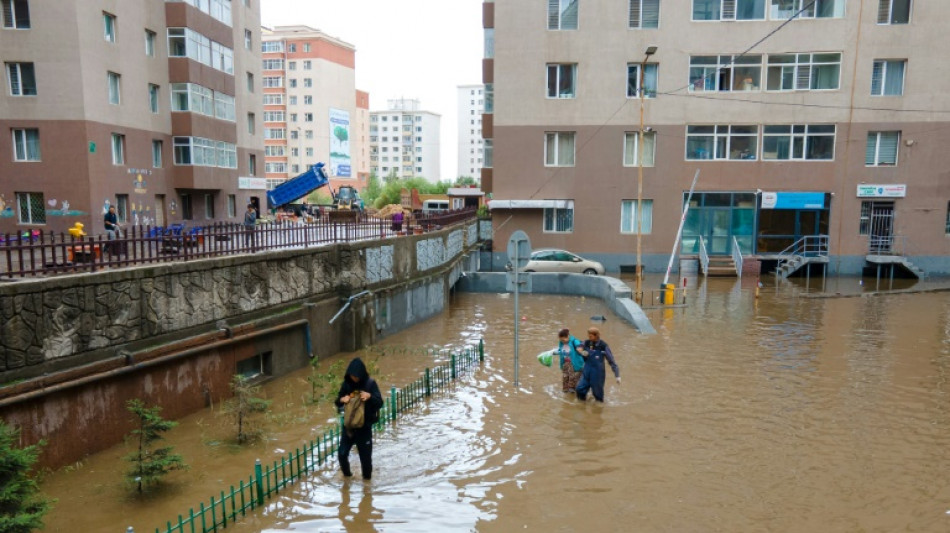

Hundreds flee homes after flooding in Mongolia capital
Hundreds of people in Mongolia's capital have fled their homes as heavy flooding inundated basement apartments, with authorities placing the city on high alert Wednesday.
Swathes of Asia have been hit by extreme weather that scientists say has been exacerbated by climate change, with over a dozen killed by heavy rain in China since Monday.
In traditionally dry Ulaanbaatar this week, heavy rains have inundated rivers, flooding basement apartments and trapping cars.
Residents of Bayanzurkh District living near the river Selbe told AFP they had been working since the early hours to boost the height of a local dam and stem rising waters caused by heavy rain.
"Our neighbours started to bring dirt and rocks from other places to add more layers on the dam at 3 am," said a 40-year-old resident of one of the worst-affected areas, who gave his name as Delgersaikhan.
"The river level reached the dam at 1 am last night, so we've been working all night and managed to prevent our apartment from getting flooded," he added.
Electricity has also been cut in some buildings as a precaution, with state news agency Montsame reporting that a number of roads in the capital have been closed.
The rain is set to continue for another two days, according to the country's weather agency.
The government declared a "high alert" in Ulaanbaatar on Wednesday, with Prime Minister Luvsannamsrai Oyun-Erdene ordering "necessary measures" be taken in response.
Mongolia is traditionally cold and dry, and annual precipitation ranges from 50 to 400 millimetres -- leaving the capital's infrastructure, including the sewage system, ill-equipped to deal with sustained heavy rain.
A.Bruno--IM



